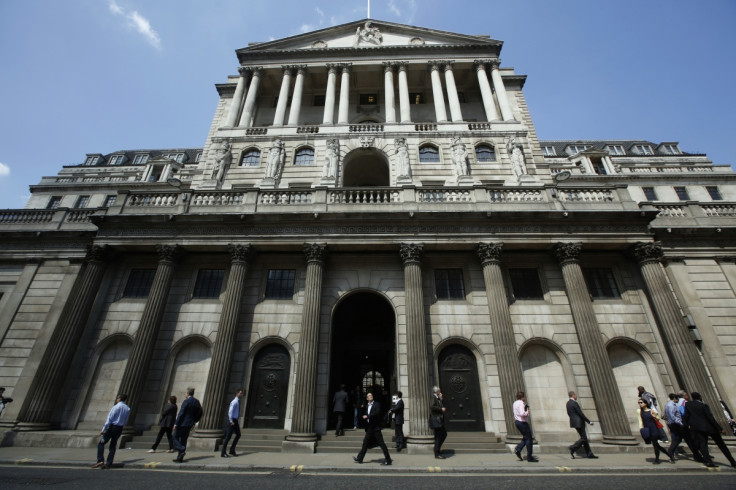EU referendum: Bank of England builds $98bn Brexit war chest to defend the pound

The Bank of England's foreign currency reserves have spiked up by 34% in the past 12 months to $98.2bn (£67.7bn, €88.2bn), in a move seen as an attempt by the central bank to protect the pound against market chaos if Britons vote to leave the European Union. The rise in the forex reserves is the largest increase in a year since 2001.
Describing the forex reserves as "Britain's war chest for emergencies", The Times quotes economists as saying that the sharp rise "appeared to be an attempt to insure the UK against disorderly collapse in the pound and potential market mayhem that might follow Brexit."
"... you wouldn't want a situation where the currency was collapsing. At that point having more reserves can help."
Goldman Sachs had warned last week that the pound could fall by 20% following a Brexit. David Owen, chief European economist at brokerage Jefferies said: "The government would accept some sterling weakness so long as it was controlled."
He continued: "But you wouldn't want a situation where the currency was collapsing. At that point having more reserves can help."
BoE governor Mark Carney had warned last month that the pound was vulnerable because of Britain's current account deficit due to the fact that it imports more goods than it exports. Financial institutions have started buying insurance against a collapse in the value of the sterling.
According to Angus Armstrong, director of macroeconomics at NIESR: "It would make no sense to wait for the outcome of the EU referendum and then decide on some contingencies." At its current level, the forex reserves have never been higher in the 17 years that the BoE has compiled data.
The last time the reserves were depleted was between 2008 and 2010 during the financial crisis when £8.4bn (€11bn, $12.2bn)was used up. In 1992, the UK spent billions in trying to keep Britain in the exchange rate mechanism. The pound however crashed out of the ERM and collapsed when the relatively low level of reserves put the UK at the mercy of speculators.
Danger EU reforms could unravel at the European Parliament
Separately, Martin Schulz, President of the European Parliament has warned that the proposed reforms put forward by Prime Minister David Cameron and agreed to by European Council President Donald Tusk may all unravel at parliament level and the worst part is, it may be too late for British voters to do anything about it.
"The British often test our patience and goodwill with their continuous demands."
This is because the European MEPs could amend or block any changes to Cameron's proposal after Britons have their say on whether to remain or leave the EU.
Speaking recently at the London School of Economics, Schultz said: "The British often test our patience and goodwill with their continuous demands. Many of my colleagues say behind closed doors: "If the Brits want to leave, let them leave. Proposals which cater to narrow self-interests risk undermining the common good, or would set dangerous precedents, for a Europe a la carte will meet resistance from the European Parliament."
Although Schulz said that he was "personally a strong supporter of the UK remaining in the EU," most MEPs were hostile to Britain and had fundamental objections to Cameron's draft proposals. MEPs will have a veto and the power to amend or delay promised new restrictions on in-work and child benefits when new legislation is tabled in parliament by the European Commission after Britons have voted in the referendum.
"The European Parliament needs to see its concerns addressed early on to avoid a serious roadblock later on when legislation will need to be debated or adopted," he said. Schulz added that there are concerns that restrictions on in-work benefits for newcomers to the British labour market could result in discrimination between British and EU migrant works and unequal pay packets.
Poland backs Britain's reform package
Jaroslaw Kaczynski, the leader of Poland's ruling law and justice party, has said that he was satisfied with the deal that Cameron has hammered out with Tusk. This includes the plans for future restrictions on EU migrant workers.
"We have fully secured the rights of Poles living already in the UK," he said, after meeting Cameron who was in Warsaw for talks. The Times said diplomatic sources claim that Poland would back the "emergency brake" deal because any decision to use it would be made at the EU level, under the supervision of the European Court of Justice.
© Copyright IBTimes 2025. All rights reserved.






















